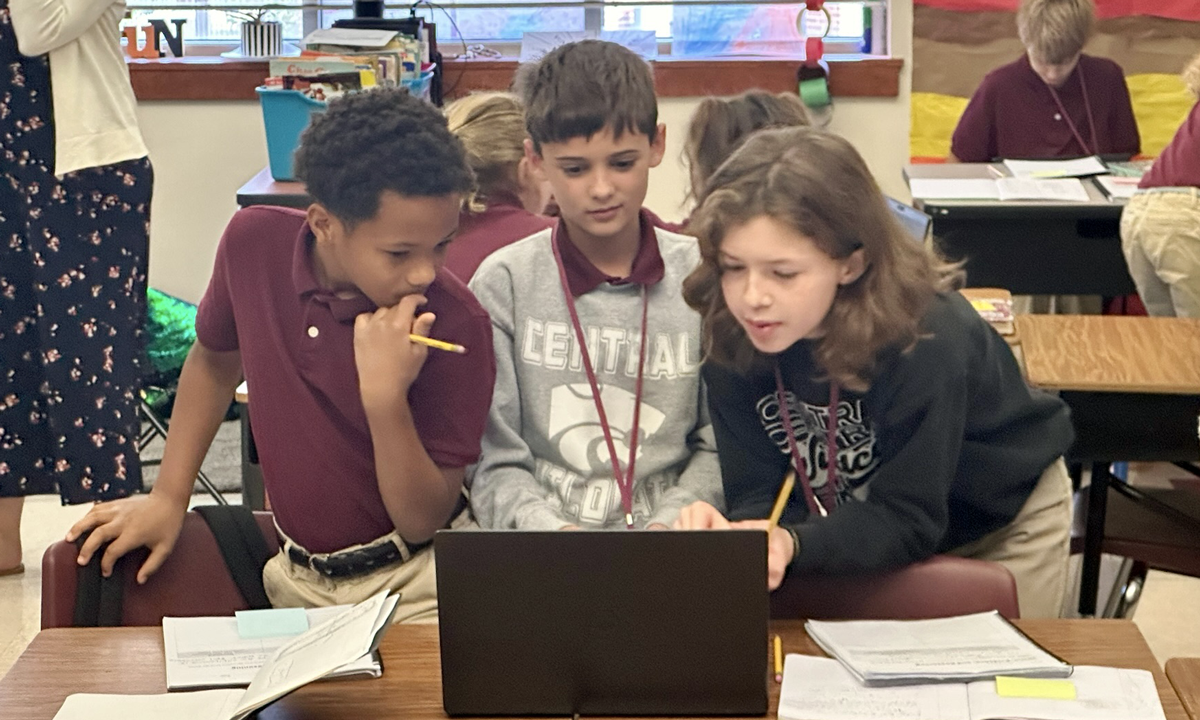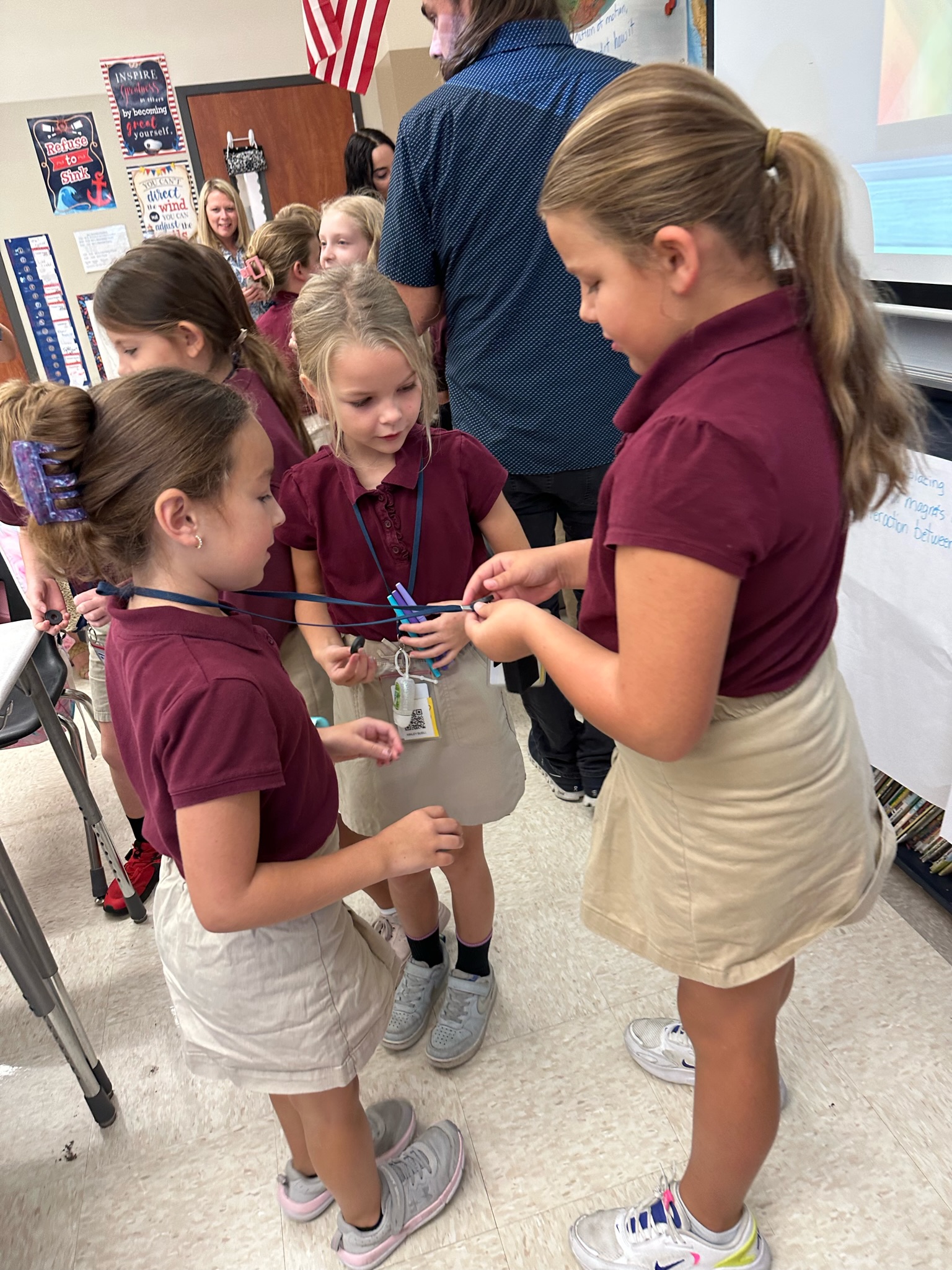Hands-On Learning: At One Louisiana School, ‘Phenomenon-Driven’ Curriculum Is Boosting Students’ Confidence & Learning Skills
Inside Baton Rouge’s Central Intermediate School, where educators are now implementing phenomenon-driven curriculum across all elementary grades.

Get stories like this delivered straight to your inbox. Sign up for The 74 Newsletter
This is the sixth in a series of essays from a Knowledge Matters Campaign tour of school districts using high-quality science curriculum. Dr. Tiffany Neill, whose background includes roles with the National Academies of Science, NAEP, and Oklahoma State Department of Education, shares observations from the campaign’s recent visit to the Central Community School System near Baton Rouge, Louisiana, which implemented PhD Science five years ago. Neill shares how the phenomenon-driven curriculum has made a profound impact on enhancing elementary students’ confidence, literacy skills, and scientific understanding through hands-on, real-world investigations. Follow the rest of the series and previous curriculum case studies here.
Imagine observing a 3rd-grade classroom where students are working together to plan and carry out investigations to explain why two magnets stick together or push away from one another. If the investigations are derived from a phenomenon-driven curriculum, you’d likely also see groups of students enthusiastically moving around the room, placing magnets on different surfaces and objects to see what happens, exuding excitement with each result and using an array of literacy skills to make sense of and explain what they’re observing.
This was exactly what I encountered in Rhondi Kennedy’s third-grade classroom at Central Intermediate School near Baton Rouge, Louisiana, as part of my first visit with the Knowledge Matters School Tour and my first chance to see an elementary school implementing phenomenon-driven curriculum across all elementary grades.
Phenomena are observable events that occur in the universe that we use science knowledge to explain or predict. Students experience phenomena in their everyday lives when they see puddles disappear overnight or feel a wall vibrate when music is played loudly.
Phenomena are also the context for the work of both scientists and engineers and can be used to drive learning experiences for students unlocking their natural curiosities, motivating them to want to make sense of why a phenomena occurs or how it works.

Phenomenon-driven instruction represents a shift in science education that began with The National Research Council and National Academy of Sciences’ 2012 release of Framework for K-12 Science Education which recommended science education be built around three major dimensions: science and engineering practices, crosscutting concepts, and core science ideas. Engaging students in making sense of phenomena supports the nexus of the three dimensions. It is how students construct meaning of science ideas and engage in scientific practices and ways of thinking.
When we sat down with elementary teachers at Central Intermediate and asked them to share what surprised them the most since implementing a curriculum centered on phenomena, they talked about the confidence students exhibited when sharing science ideas and ways of thinking about science through talk and writing. One teacher noted that “the kids are just getting better at learning how to communicate with each other” and that “they’re getting the confidence to discuss and turn and talk”.
We witnessed this confidence firsthand during our visit to various classrooms at Central Intermediate and could see how the curriculum provided ample opportunity for students to talk and share what they were thinking with their peers. One teacher noted that the students “are having to do so much more reasoning” and thinking about “Do I agree with this person? Why do I disagree?” Students like learning how the world works and enjoy talking about phenomena.
Often, the phenomena students investigate in the classroom represent phenomena they have encountered outside the classroom, giving students a wealth of background experiences to bring to their discussions. Many of the students in Mrs. Kennedy’s classroom talked about experiences they had with magnets at home and used those experiences to make sense of what they were seeing in the classroom.
The ability for students to pull from a wealth of experiences outside the classroom to explain phenomena in the classroom also helps students write with more confidence and ability. Brittany Lavergne, a fourth-grade teacher noted that “before [using the curriculum] we were just trying to get them [students] to have a complete answer, complete idea, a complete sentence. Now we’re getting claims with supporting evidence, with multiple pieces of evidence and student responses that are so much more in depth.”
Dramatic improvement in writing is one of the most oft-mentioned early benefits to implementing phenomenon-driven science curriculum because students write about what they are observing through direct experiences. In fact, they are often eager to write about something they’re curious about or have had experiences with in the past.
Teachers at Central Intermediate have also seen student writing improve as students transition across grades. Mrs. Lavergne shared that “It just seems like every group we get, they’re better writers. They’re able to express what they’re learning and what they’re thinking. And it’s just an increase from what we had seen the years before.”
The students at Central Intermediate showcased remarkable motivation and confidence in discussing scientific ideas, demonstrating the effectiveness of phenomenon-driven instruction. This approach not only ensures access to quality science education but also acts as a dynamic catalyst for enhancing oral language, vocabulary, and writing skills. The visit to Central Intermediate vividly illustrated the transformative power of phenomenon-driven curriculum, shaping students into well-rounded individuals ready to excel in the scientific community and beyond.
Get stories like these delivered straight to your inbox. Sign up for The 74 Newsletter

;)